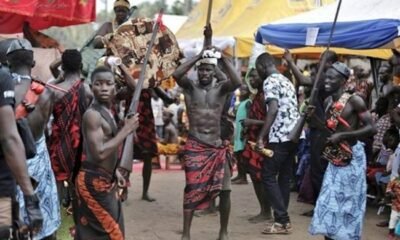People & Culture
The Wodaabe People of Niger
Published
3 years agoon
By
M N Ridwan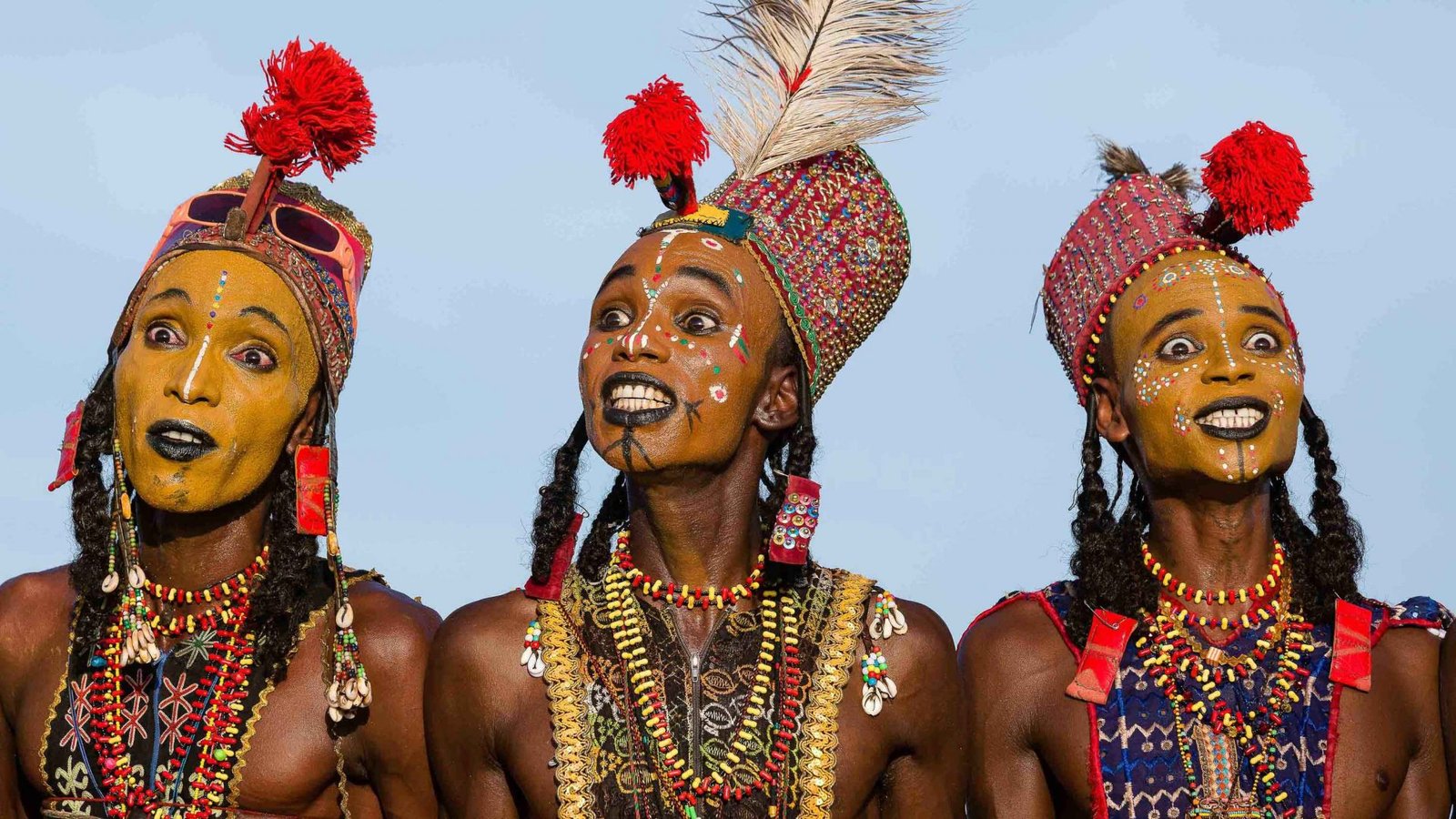
The Wodaabe people of Niger are a nomadic, pastoralist ethnic group known for their unique customs, beliefs, and traditional way of life.
With a population of over 500,000, the Wodaabe are primarily concentrated in the arid regions of northern Niger, Chad, and Nigeria. They are fascinating and resilient people who have survived for centuries in one of the harshest environments on earth.
Wodaabe society is organized around extended families who own large herds of cattle, sheep, and goats. Their survival is dependent on their animals, which provide food, clothing, and wealth.
The Wodaabe have developed a complex system of pastoralism, moving their herds in a seasonal cycle that allows them to find food and water while avoiding overgrazing.
This way of life has been passed down from generation to generation, and the Wodaabe continue to thrive in the harsh conditions of the Sahara Desert.
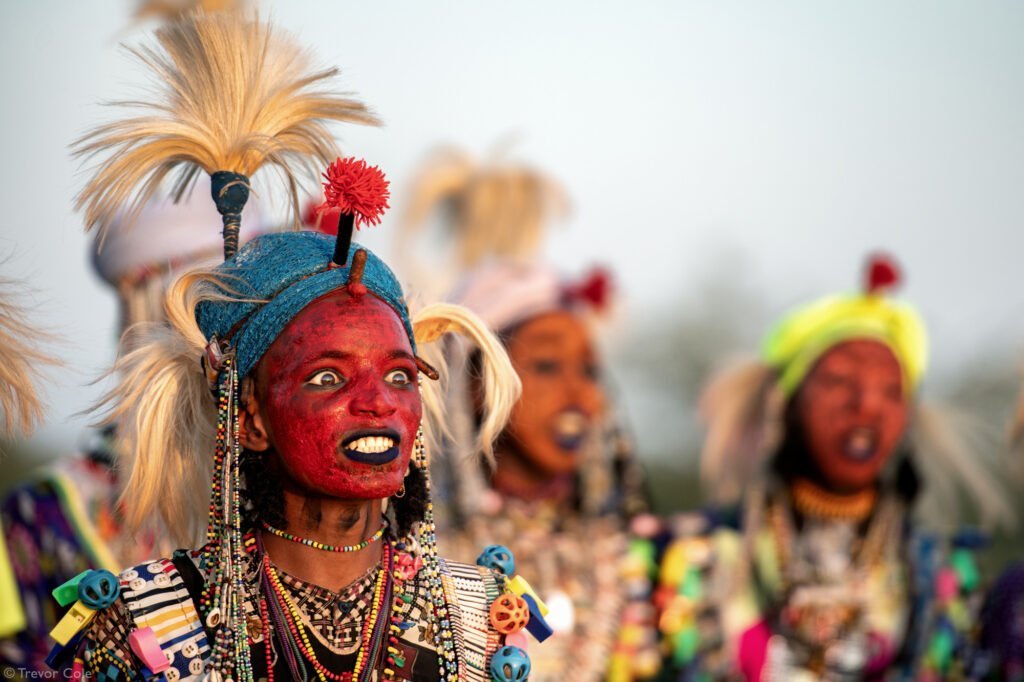
One of the most distinctive aspects of Wodaabe culture is their religious beliefs. The Wodaabe are animists, believing that spirits inhabit all natural objects and animals. They also worship a supreme being, called Ndebe, who is responsible for all things in the world.
The Wodaabe believe that Ndebe created the world and all living things, and that he is present in the sun, the moon, and the stars. They also believe that Ndebe has the power to protect and guide them, and that he will help them find their way in life.
The Wodaabe are also known for their traditional rituals, particularly the Gerewol, a dance and beauty contest that is held annually. The Gerewol is a celebration of beauty, courtship, and competition.
Men paint their faces and bodies with intricate designs, adorn themselves with brightly colored costumes, and participate in a dance competition to attract a female mate. The women, who are usually spectators, select the most handsome and graceful dancer as a potential husband.
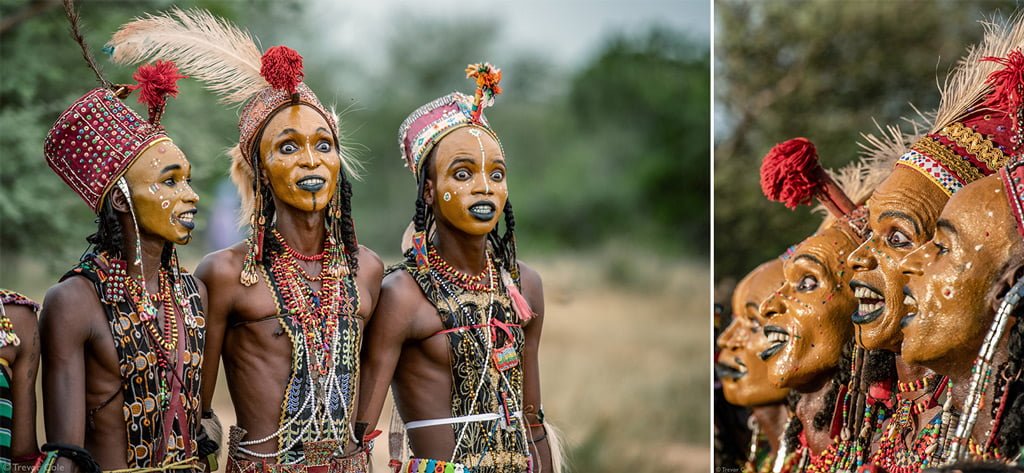
The Wodaabe people are also known for their hospitality and kindness. They welcome visitors to their camps, sharing their food and stories with anyone who comes to visit. They have a rich oral tradition, and their stories and songs are an important part of their culture. They are proud of their heritage and are quick to share their beliefs and customs with anyone who is interested.
The Wodaabe people face many challenges in their modern world. Climate change, drought, and the loss of traditional grazing lands are threatening their way of life.
The Wodaabe are also vulnerable to exploitation and violence, particularly in areas where resources are scarce. Many of them have been forced to abandon their nomadic lifestyle and settle in towns and cities, where they struggle to adapt to a completely different way of life.
Despite these challenges, the Wodaabe are determined to preserve their traditional culture and way of life. They have established organizations and cooperatives to help them manage their resources and support each other in their struggles.
They are also working with government and non-government organizations to promote their culture and improve their lives.
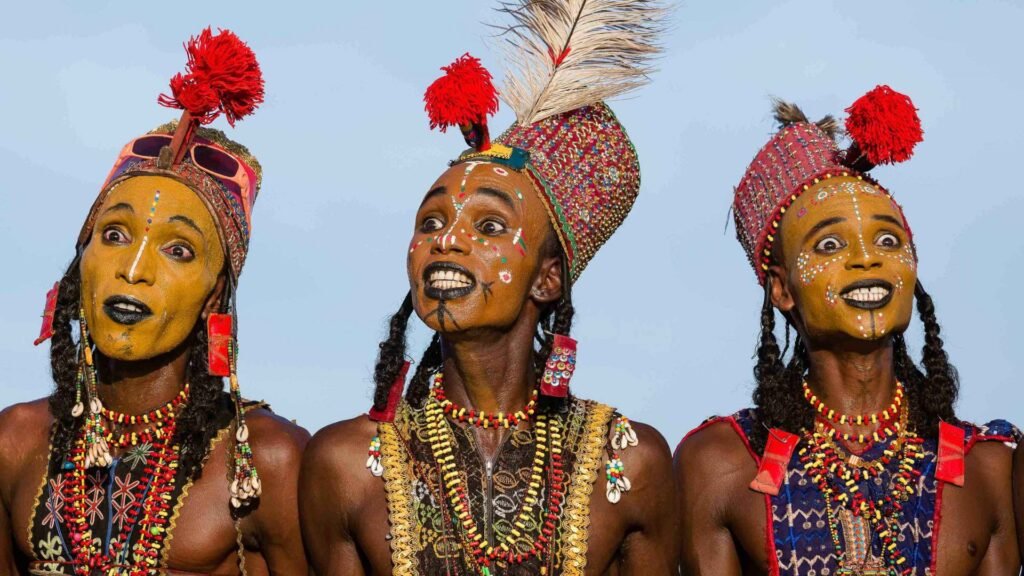
In conclusion, the Wodaabe people of Niger are a unique and fascinating group of people who have managed to survive and thrive in one of the harshest environments on earth. With their rich cultural heritage, strong religious beliefs, and strong community spirit, the Wodaabe are a remarkable example of resilience and adaptability.
Despite the many challenges they face, the Wodaabe remain determined to preserve their traditional way of life and ensure that their culture and traditions are passed down to future generations.



